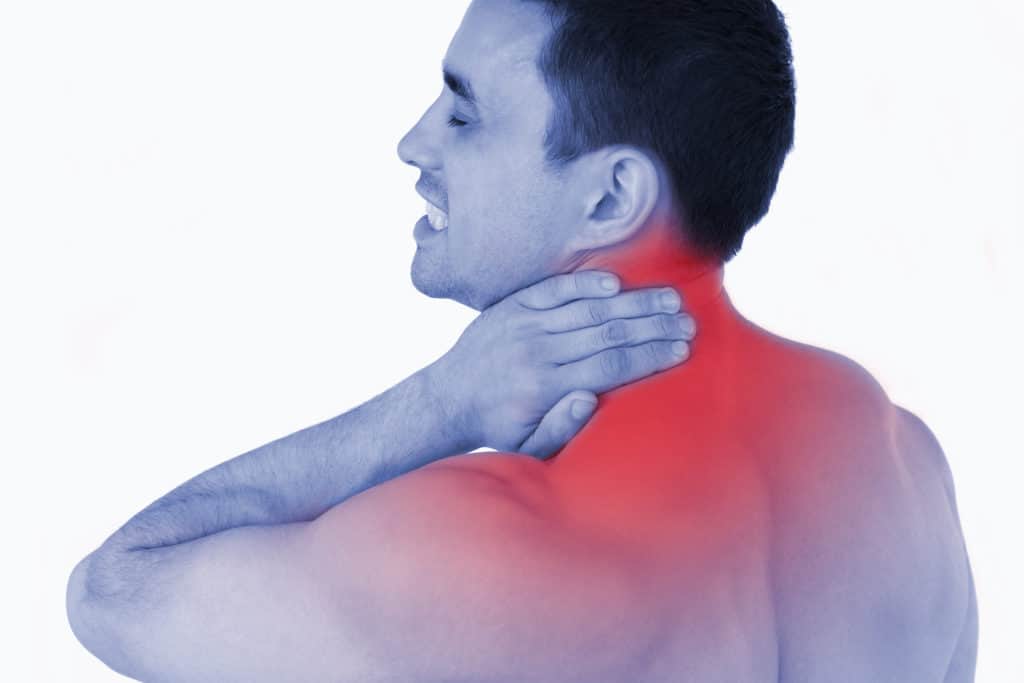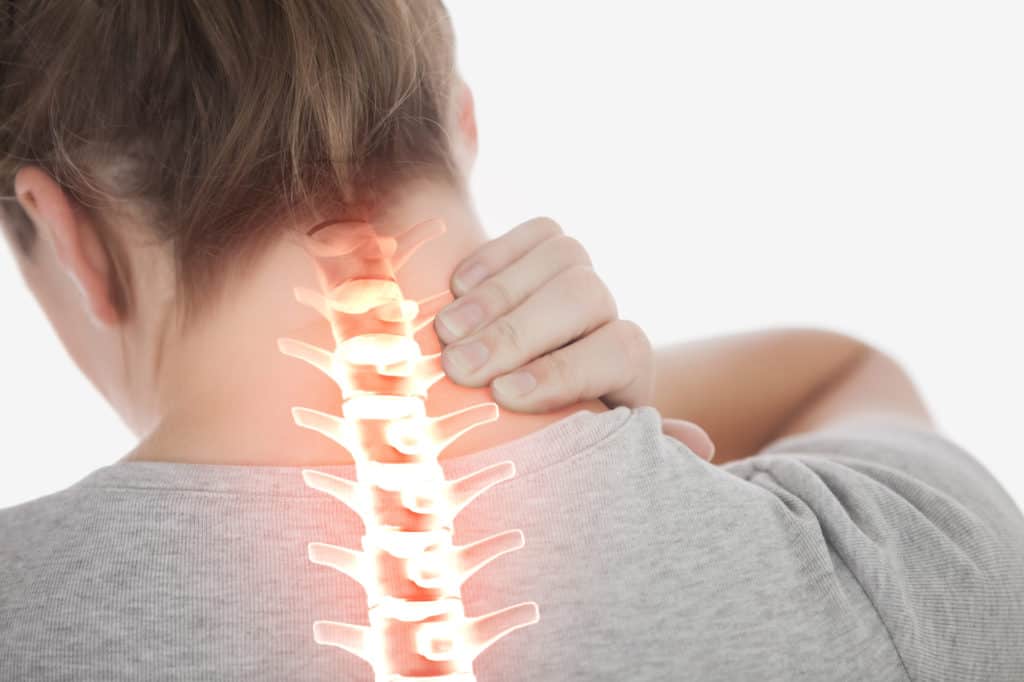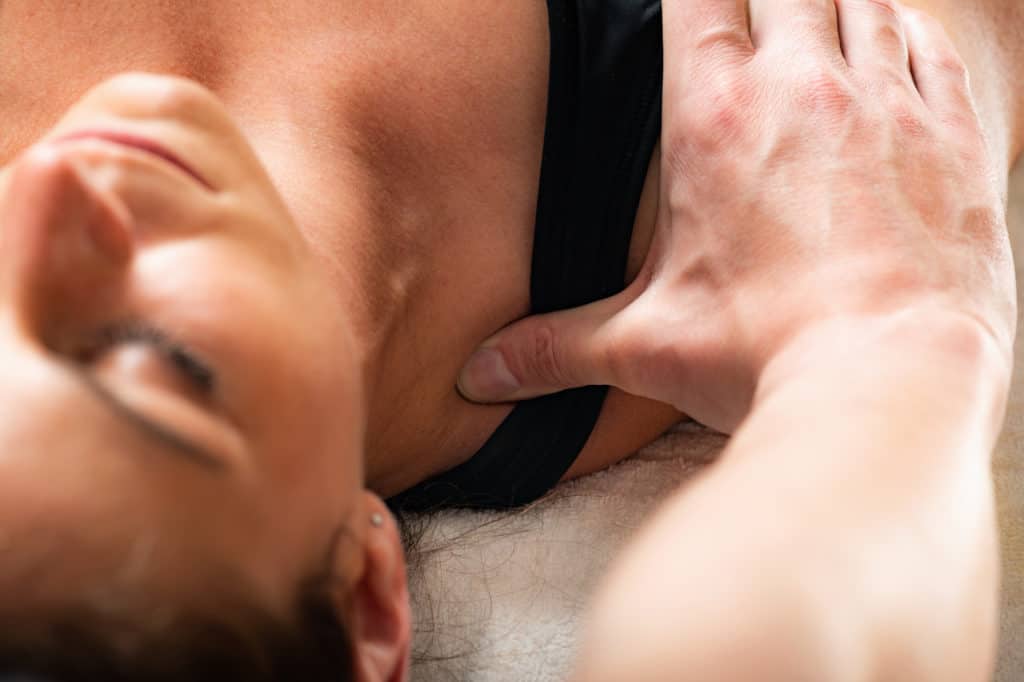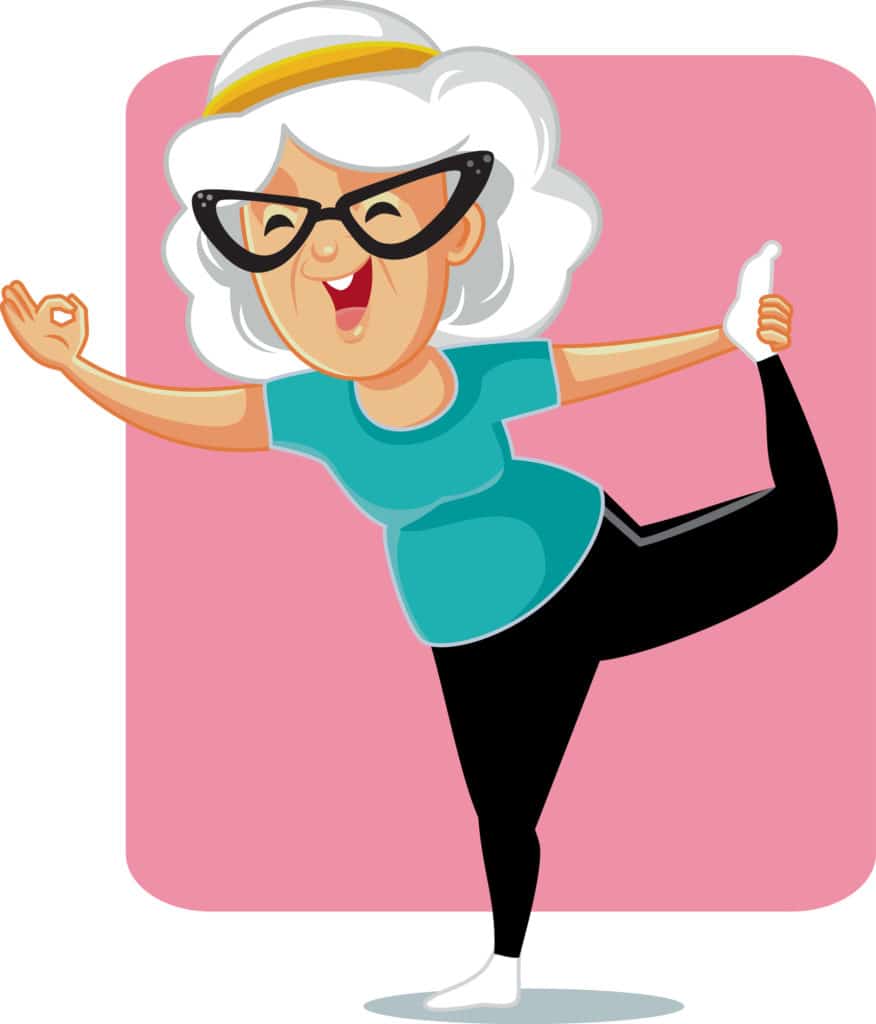
Have you got a sore neck? Desperate to relieve neck pain?
Neck pain is awful. The pain is all-consuming and hard to escape. Mainly because it’s difficult to rest the neck. It’s right there holding your head up all day long.
Unless you stay horizontal, which isn’t conducive to a full and satisfying life, every turn of your head can be excruciating. Or extreme stiffness can even make it impossible to move the head at all, depending on your specific symptoms.
Does that sound like you?
The neck is composed of vertebrae extending from the skull to the upper part of the torso. In between are cervical discs that serve as shock absorbers. The muscles, ligaments and bones in the neck support the head, enabling it to move left and right, up, and down and round in circles.
Therefore, any injury, inflammation, or abnormality in these areas leads to stiffness and neck pain.
When you suffer from neck pain or stiffness, the discomfort is mainly due to overuse or incorrect posture over time. Occasionally, it may be caused by injury, Whiplash from a car crash, other accidents, or a fall. Generally, neck pain is not serious, and we can resolve it quickly. However, sometimes, it may indicate an underlying illness or injury that requires a doctor’s attention.
If you have severe neck pain with additional accompanying symptoms that last for more than seven days, we recommend you contact your doctor for an evaluation.
What Causes Neck Pain?

Neck pain occurs for various reasons. Here are the most common causes of neck pain we see in the Gage Physiotherapy Clinic:
Muscular strain or tension: the type caused by incorrect sleep posture, sudden neck jerking while exercising. Working long hours seated without position change or poor body posture while sitting or standing all cause neck pain.
Injury to the neck: Any injury to the neck through sports, a vehicle accident, or a fall can damage the ligaments and muscles of the neck. They may force your neck to move unnaturally due to the impact. Tiny fractures in the neck bones (cervical vertebrae) or damage to the upper quadrant of the spine from Whiplash and suddenly jerking the head are common causes.
Some of the other causes of neck pain include Fibromyalgia; a chronic pain condition that leads to muscle soreness and pain all over the body, mainly in the shoulder and neck areas.
Arthritis

Rheumatoid arthritis: This inflammatory, auto-immune version of arthritis is characterized by bone spurs, joints swelling and pain. Rheumatoid arthritis in the upper quadrant of the spine is a common cause of neck pain.
Osteoarthritis: The more common form of arthritis, Osteoarthritis, causes weakening of the bones, and it may cause minor fractures in and around the neck.
While both forms of arthritis are more common in the hands, knees, or ankles, they may also affect the neck region.
Ageing: When we age, degeneration of the cervical discs may occur. It could be in the form of Osteoarthritis or spondylosis of the neck. These conditions reduce the vertebrae space, cause joints stress and lead to neck pain.
“We help people 50+ to become more active and mobile, without painkillers, so you can do what you enjoy most.”
Don’t let neck pain stop you from doing what you love. We’re here to help.
Herniated cervical disc: In case of injury or any trauma, a disc might protrude from your spine, causing pressure on the roots of nerves or the spinal cord, commonly referred to as slipped or ruptured disc. These slipped, or ruptured discs in the upper spine can often cause neck pain.
Spinal stenosis: “Stenosis” occurs in the spine due to spinal cord narrowing, leading to pressure on the nerve roots or spinal cord. The cause can be chronic inflammation brought on by arthritis or other inflammatory conditions or because of other medical conditions. But whatever the reason, spinal stenosis often is the root cause of neck pain.
Some of the rarer reasons for neck pain are:
- Infections
- Tumours
- Congenital abnormalities
- Abscesses
- Cancer of the spine
Heart issues: In rare cases, neck pain may be symptomatic of an upcoming heart attack. But the following symptoms usually accompany the neck pain:
- Pain in the jaw or arm
- Difficulty in breathing
- A feeling of nausea
- Profuse sweating
- vomiting
If you have neck pain along with any of these symptoms, you should visit the emergency room or call 911.
Meningitis: Again, this connection with neck pain is rare, but when the thin tissue in the spinal cord and brain gets inflamed, it is known as meningitis. A meningitis patient will exhibit symptoms of a headache, accompanied by fever and a stiff neck. It can be life-threatening and a medical emergency. Therefore, it needs immediate medical care.
What’s Causing Your Neck Pain?

When you visit a doctor or a Physiotherapist to find the cause of your neck pain, we begin by asking you about your medical history. We must be aware of all contributory factors to make an accurate diagnosis, like whether you’ve recently injured your neck. Have any underlying medical conditions, and whether you’re taking any medications or supplements. Then we conduct a physical examination of your neck and the rest of your body – because everything is connected.
The treatment we prescribe for your neck pain is subject to the examination and subsequent diagnosis of the root cause of your pain. But if the cause isn’t immediately apparent, we may recommend you see a medical doctor for further testing for an accurate picture of what’s going on inside your neck to enable us to provide the most effective form of treatment. These include:
- MRI Scans
- CT Scans
- X-rays
But most cases of neck pain can be effectively diagnosed and treated inside your Physiotherapist’s office because the pain is most likely due to poor posture and overuse.
How To Treat And Relieve Neck Pain

The best way to treat neck pain is to arrange a consultation with a physiotherapist. First, to identify the root cause of your pain and create an individualized treatment plan to resolve the pain quickly and effectively. Your personalized plan may include therapeutic stretching exercises, joint and soft tissue manipulation, heat therapy, massage, ultrasound, or a combination of all. But everything is geared towards increasing the strength of your neck and supporting muscles.
We take away the pain and stiffness. Help you find out what’s going on and identify the root cause of your pain, even if you’ve been suffering for ages. We help you sleep through the night again and improve your energy and zest for life. But best of all, get you back to enjoying time with your friends and family without reaching for painkillers or faking a happy face to mask the pain.
Are you ready to get out of pain now? Book your free consultation now >>
Other treatments for neck pain:
Your doctor may offer pain pills, corticosteroid injections, and muscle relaxants. If your neck pain is due to an infection, they may also prescribe antibiotics. These interventions can help reduce severe pain, but they’re a temporary fix and only mask the pain. Some have negative consequences for your long-term health, too. Hence, it’s best to avoid them and see a physiotherapist instead.
If you’re in pain now, try using heat therapy – either an ice pack to lower inflammation, a heat wraps to soothe the pain or alternate between the two. Taking a hot bath or shower might also help.
You could also try some of the following home remedies:
Home Remedies To Alleviate And Relieve Neck Pain

- Do gentle neck exercises stretching the neck up and down and sideways.
- Try to maintain a good posture, especially while working at a computer.
- Avoid lifting weights or any activities that exacerbate your symptoms.
- Never cradle a phone between the shoulder and neck while speaking.
- Avoid standing or sitting for extended periods in one position.
- Get the neck massaged gently.
- Use over-the-counter medication on occasion (for severe pain only).
- Get a special neck pillow to use when sleeping.
Some other complementary therapies for neck pain are:
- TENS (transcutaneous electrical nerve stimulation)
- Massage
- Chiropractic treatment
- Acupuncture
- Acupressure
Note: All the above must only be performed by a licensed professional.
When To Consult A Doctor About Neck Pain

If you have any of the following symptoms alongside your neck pain, it’s imperative to consult a doctor to rule out more serious causes of neck pain:
- A lump in the beck region.
- Excessive pain in the neck for no plausible reason.
- A severe headache accompanied by fever.
- Difficulty breathing or swallowing.
- Vomiting or nausea.
- Swollen glands in the neck region.
- Persistent numbness or weakness
- Not able to touch the chin to the chest area.
- A tingling sensation or pain that travels down to the limbs.
- Movements of the hands or arms are affected.
- Bowel or bladder dysfunction.
- In case of an injury to the neck or a fall, please seek immediate medical attention.
At Gage Physio, we can help guide you back to health, and away from neck pain. Get in touch with me anytime through my physio contact page!

